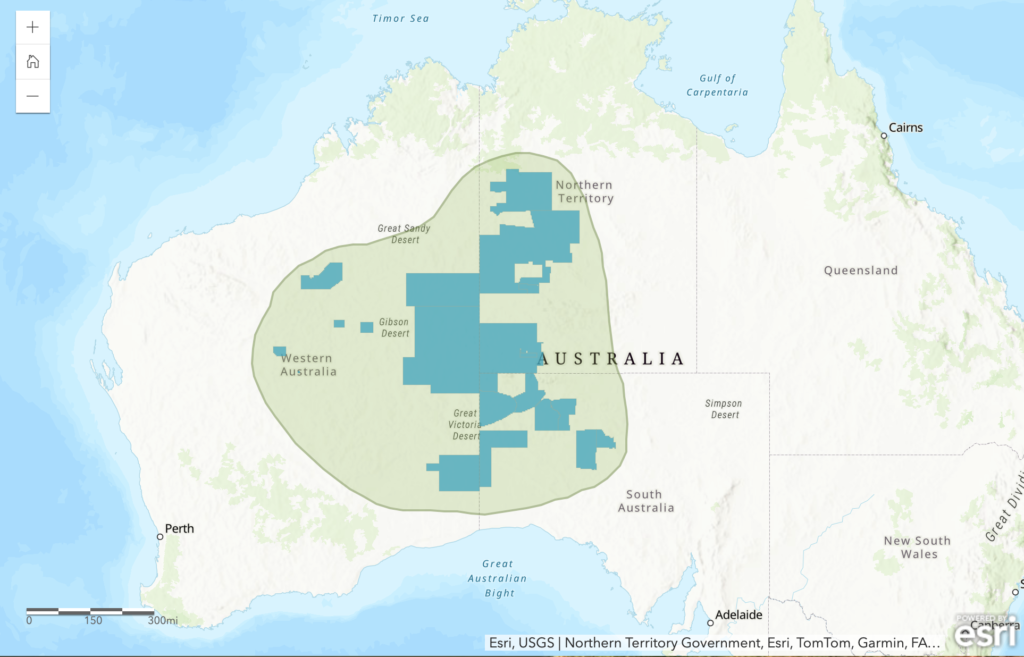Oceania World Park
One possibility for the Oceania World Park is the vast desert and shrubland of central Australia, which stretch for over 1,000 miles from east to west.
This region is home to some of the largest expanses of natural landscape and wilderness in Oceania.
As increasing human populations and industrial activities creep further into this ecosystem, it becomes even more important to conserve it. The desert from near Alice Springs in the Northern Territory to central Western Australia is an ideal candidate for a World Park due to its limited infrastructure, high ecological and biological diversity and high level of existing protection.
Scroll down to explore how World Parks, Inc. is working to create the Oceania World Park.
Areas such as the Outback are among the most well-known and studied protected ecosystems on the planet.
By building off of existing conserved and protected areas (as highlighted here), we are expediting the process of large-scale landscape conservation by filling in the missing areas of interest.
Based on an assessment using data from the UN Environment Program and the Integrated Biodiversity Assessment Tool, this proposed World Park would include over 900 species on the IUCN Red List and nearly 100 existing protected areas.
Scroll down to explore how World Parks, Inc. is defining the Oceania World Park.
Ecologically speaking, it is more beneficial to have larger, connected areas of protection than to have smaller, disjointed areas.
This proposed Oceania World Park will be a bold and innovative solution to environmental protection and international cooperation. The Oceania World Park will ensure that native lands are protected and cover over 350,000 square miles of desert and shrubland.
We see this as necessary to ensure the world meets the conservation goals set out by the global scientific community.


